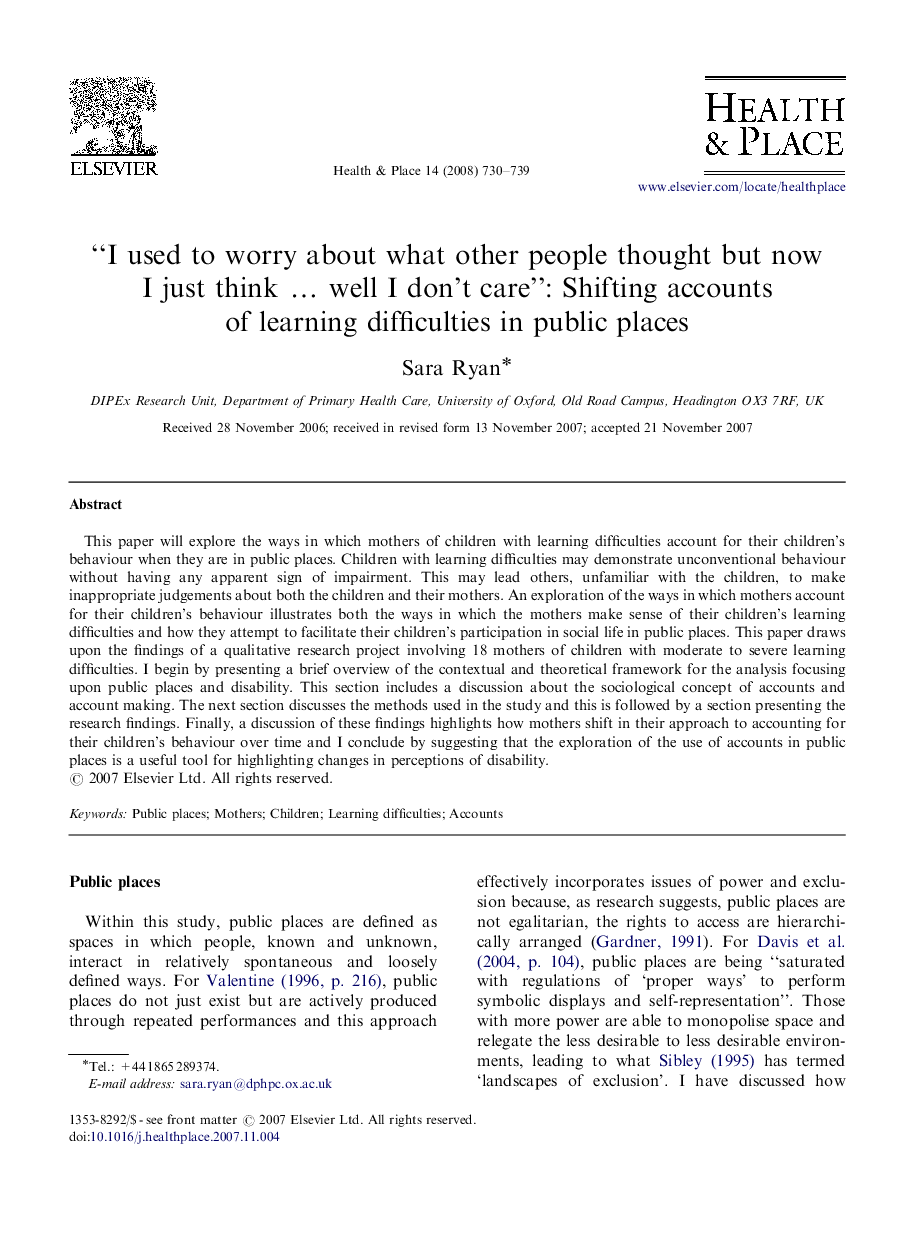| Article ID | Journal | Published Year | Pages | File Type |
|---|---|---|---|---|
| 1048945 | Health & Place | 2008 | 10 Pages |
This paper will explore the ways in which mothers of children with learning difficulties account for their children's behaviour when they are in public places. Children with learning difficulties may demonstrate unconventional behaviour without having any apparent sign of impairment. This may lead others, unfamiliar with the children, to make inappropriate judgements about both the children and their mothers. An exploration of the ways in which mothers account for their children's behaviour illustrates both the ways in which the mothers make sense of their children's learning difficulties and how they attempt to facilitate their children's participation in social life in public places. This paper draws upon the findings of a qualitative research project involving 18 mothers of children with moderate to severe learning difficulties. I begin by presenting a brief overview of the contextual and theoretical framework for the analysis focusing upon public places and disability. This section includes a discussion about the sociological concept of accounts and account making. The next section discusses the methods used in the study and this is followed by a section presenting the research findings. Finally, a discussion of these findings highlights how mothers shift in their approach to accounting for their children's behaviour over time and I conclude by suggesting that the exploration of the use of accounts in public places is a useful tool for highlighting changes in perceptions of disability.
